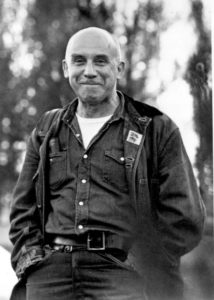 Merton has played a central part in my spiritual awakening and there’s so much material to choose from to show his role as a spiritual pioneer. Currently I am re-reading volume 6 Learning to Love and so these extracts and reflections are taken from the first part of this journal. Here Merton the theologian of experience is very present and his pioneering spirituality opens up the connections within his inner world and what is happening to him in the outer. It is authentic and painfully honest. After all what other theologian or spiritual leader do you know who so openly reflects on the passion and the desolation of human love?
Merton has played a central part in my spiritual awakening and there’s so much material to choose from to show his role as a spiritual pioneer. Currently I am re-reading volume 6 Learning to Love and so these extracts and reflections are taken from the first part of this journal. Here Merton the theologian of experience is very present and his pioneering spirituality opens up the connections within his inner world and what is happening to him in the outer. It is authentic and painfully honest. After all what other theologian or spiritual leader do you know who so openly reflects on the passion and the desolation of human love?
What strikes me is that Merton is one of those spiritual guides who can clearly speak to one’s inner condition. He writes as a human being connecting with the reader – as if speaking directly to one’s concerns; this has been called his compassionate transparency – there’s space here for the reader to connect and reflect on themselves in the light of what Merton writes. This journal includes much material on the solitude Merton experiences in the hermitage: he feels that he is really getting grounded in solitude. On retreat in the hermitage in late January 1966 Merton reviews his life and his involvement in war and peace studies, racism, literature in general and monasticism. He considers his health, demands to alter the liturgy, and, correspondence on poetry. He concludes the review with one central option:
‘to let go of all that seems to suggest getting somewhere, being someone, having a name and a voice, following a policy and directing people in “my” ways. What matters is to love, to be in one place in silence, if necessary in suffering, sickness, tribulation, and not try to be anybody outwardly. Not try to have a public identity.’
In March 1966 Merton has a back operation, meets M. a student nurse and begins a loving relationship with her. After the operation Merton returns to the hermitage commenting on how after the hospital experience, he notes that he is becoming more and more himself, deeper and deeper: ‘It is shocking to realize that you sometimes have to fight to get yourself back when some great trauma has broken in on you.’ He plans future work in order to give to others and fearful in case another operation might be needed he comments: ‘I have got to be faithful, detached, obedient, concerned not only for my own life as I want to live it, but for God’s will that remains to be realised in and through me. That is all.’
Becoming very involved with M. Merton comments that in times when he is groping for support and strength where else would he turn except to God’s word: from 1 John 4: ‘Little children you belong to God … for He who is within you is greater than he who is in the world …’ (TM’s italics) So confused and immersed in the relationship with M. Merton decides to pray for her ‘as earnestly and honestly as possible and leave the rest to God.’ He sees that his life tries to be in God and tries to dwell at the point ‘where life and grace well up out of the unknown.’